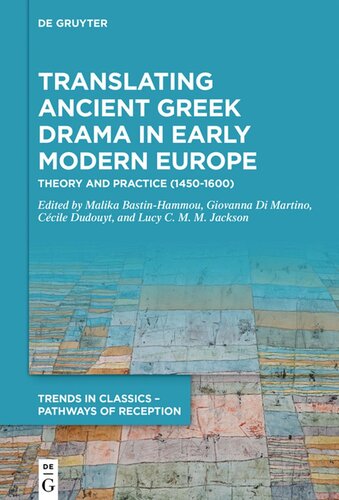

Most ebook files are in PDF format, so you can easily read them using various software such as Foxit Reader or directly on the Google Chrome browser.
Some ebook files are released by publishers in other formats such as .awz, .mobi, .epub, .fb2, etc. You may need to install specific software to read these formats on mobile/PC, such as Calibre.
Please read the tutorial at this link: https://ebookbell.com/faq
We offer FREE conversion to the popular formats you request; however, this may take some time. Therefore, right after payment, please email us, and we will try to provide the service as quickly as possible.
For some exceptional file formats or broken links (if any), please refrain from opening any disputes. Instead, email us first, and we will try to assist within a maximum of 6 hours.
EbookBell Team

4.0
76 reviewsThe volume brings together contributions on 15th and 16th century translation throughout Europe (in particular Italy, France, Spain, Portugal, Germany, and England).
Whilst studies of the reception of ancient Greek drama in this period have generally focused on one national tradition, this book widens the geographical and linguistic scope so as to approach it as a European phenomenon. Latin translations are particularly emblematic of this broader scope: translators from all over Europe latinised Greek drama and, as they did so, developed networks of translators and practices of translation that could transcend national borders. The chapters collected here demonstrate that translation theory and practice did not develop in national isolation, but were part of a larger European phenomenon, nourished by common references to Biblical and Greco-Roman antiquities, and honed by common religious and scholarly controversies. In addition to situating these texts in the wider context of the reception of Greek drama in the early modern period, this volume opens avenues for theoretical debate about translation practices and discourses on translation, and on how they map on to twenty-first-century terminology.